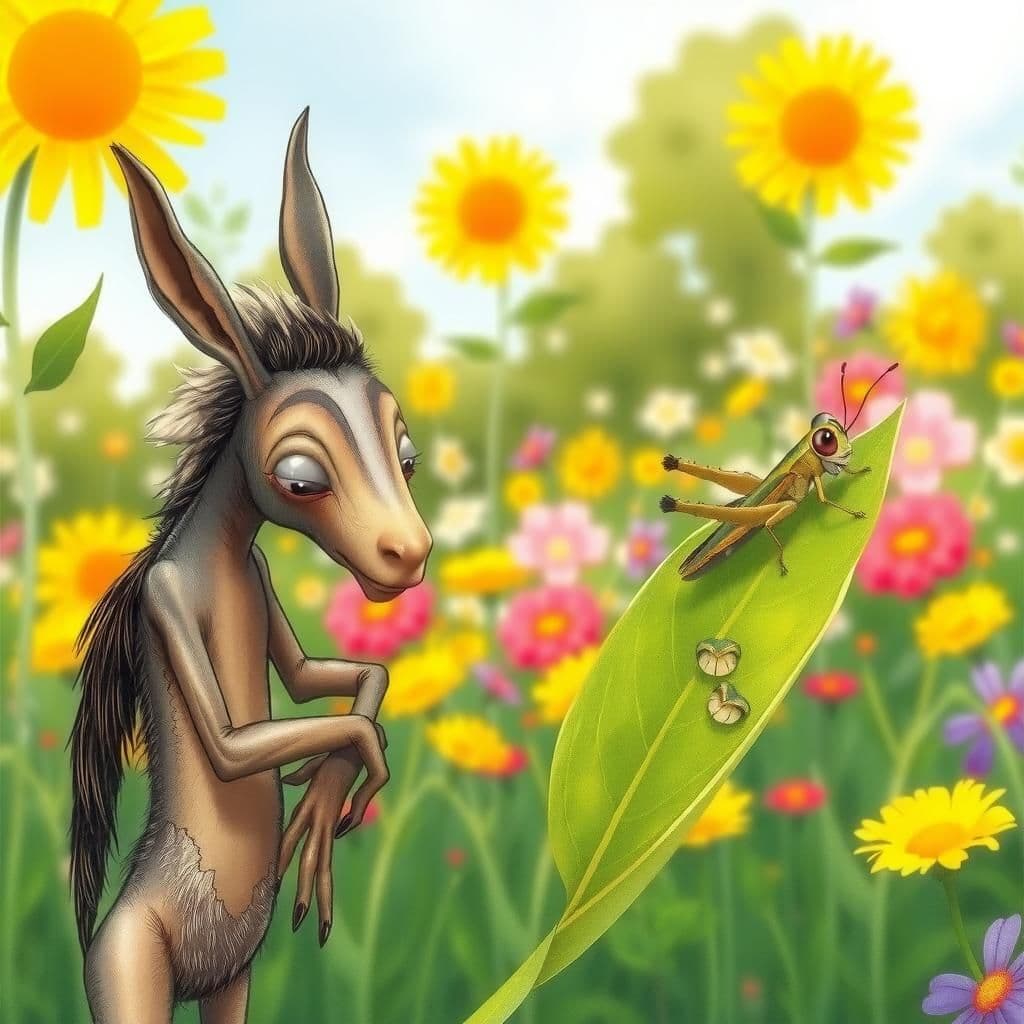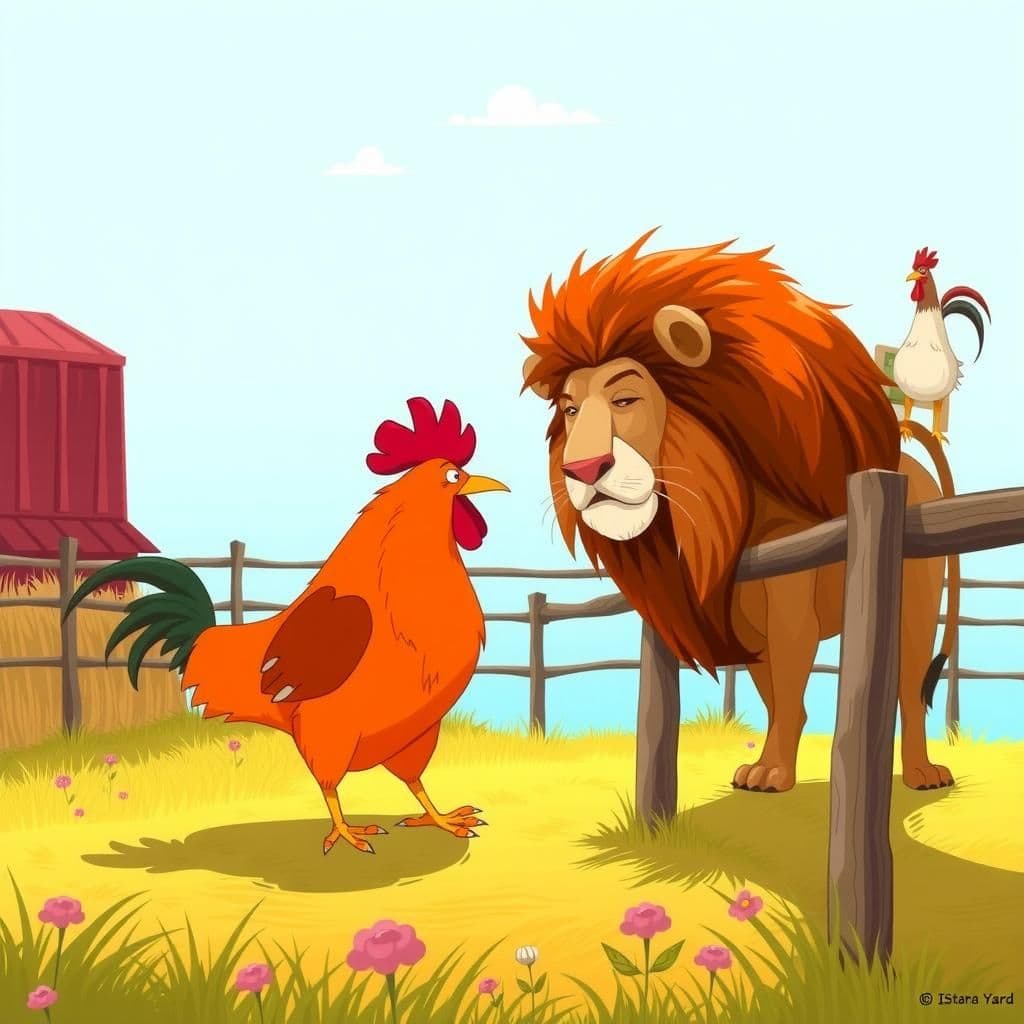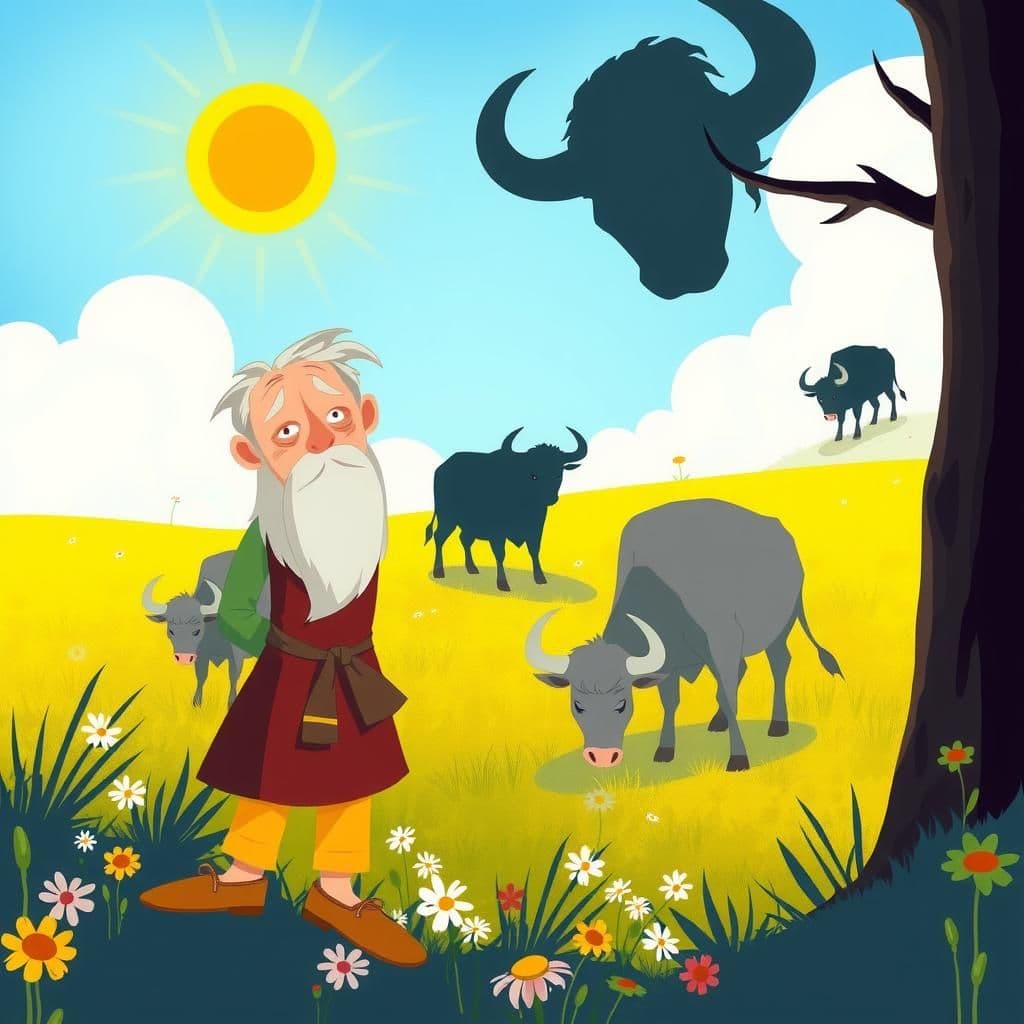The Ass and the Grasshopper
In the well-known moral story "The Ass and the Grasshopper," an ass becomes enchanted by the beautiful singing of grasshoppers and, in his desire to emulate them, decides to live solely on dew, believing it to be the secret to their melody. This foolish choice leads to his tragic death from starvation, illustrating that attempting to imitate others without understanding their needs can have dire consequences. This simple moral story serves as a cautionary tale for students about the dangers of envy and blind imitation.

Reveal Moral
"The moral of the story is that one should not blindly imitate others without understanding their needs and circumstances."
You May Also Like

The Dog and the Oyster
In the classic moral story "The Dog and the Oyster," a dog mistakenly swallows an oyster, thinking it to be an egg, and suffers great pain as a consequence. This humorous tale serves as a concise moral story, illustrating that those who act without sufficient thought often encounter unforeseen dangers. Ultimately, it reminds us that impulsive decisions can lead to regret, making it one of the best moral stories to share.

The Ass the Cock and the Lion
In "The Ass the Cock and the Lion," a tale that embodies value-based moral stories, a Cock's loud crowing scares away a hungry Lion, instilling false confidence in the Ass. Believing he can confront the Lion, the Ass foolishly pursues him, only to be caught and killed. This short and sweet moral story teaches that misplaced bravery can lead to dangerous consequences, offering a valuable lesson in humility.

The Old Man and The Ass
In "The Old Man and The Ass," a classic among concise moral stories, an old man and his ass encounter a lush meadow, where the carefree animal prioritizes its own comfort over the man's warnings about approaching robbers. This dynamic illustrates themes of self-interest and the relationship between master and servant, serving as a reminder found in many famous fables with moral lessons: sometimes, one's own safety may be overlooked in the pursuit of personal pleasure. Ultimately, the tale underscores the importance of recognizing the true nature of those we rely on in moral-based storytelling.